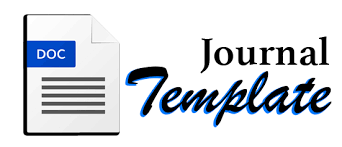REALISASI PROGRAM JIMPITAN KARANG TARUNA BUGIS GENERATION DALAM MENINGKATKAN PERAN SOSIAL KEMASYARAKATAN
DOI:
https://doi.org/10.21154/inej.v1i2.2331Abstract
Program pengabdian masyarakat ini bertujuan untuk pemberdayaan dengan memberikan fasilitasi kepada karang tarunana BG Generations Dusun Bugis Desa Bekare yang telah memiliki program lama yang belum terealisisi yaitu program jimpitan. Pengabdian dengan metode ABCD dapat meyakinkan kembali bahwa BG Generaitons dapat merealisasikan program jimpitan dan dapat menggugah semangat masyarakat untuk mendukung kegiatan tersebut. Kegiatan dalam pengebdian ini didasarkan pada metode penemuan apresiatif (appreciative inquiry) yang terdiri dari discovery, dream, design, dan destiny. Inti dari pengabdian ini adalah
mendesain untuk merealisasikan program jimpitan, maka dilakukanlah kegiatan sosialisasi yang memberikan pengetahuan kepada masyarakat terkait pentingnya program jimpitan dan memberikan pendampingan atau fasilitasi dengan berpartisipasi dalam penyusunan pengelola, pengumpulan dan pemasangan kaleng sebagai sarana pengumpulan dana jimpitan dan mendampingi menyiapkan pembukuan. Respon masyarakat sangat positif terhadap program jimpitan. Kata kunci: Karang Taruna, Program Jimpitan
Downloads
Published
Issue
Section
License
Please find the rights and licenses in InEJ. By submitting the article/manuscript of the article, the author(s) agree with this policy. No specific document sign-off is required.1. License
The non-commercial use of the article will be governed by the Creative Commons Attribution license as currently displayed on Creative Commons Attribution-NonCommercial-ShareAlike 4.0 International License.
2. Author(s)' Warranties
The author warrants that the article is original, written by stated author(s), has not been published before, contains no unlawful statements, does not infringe the rights of others, is subject to copyright that is vested exclusively in the author and free of any third party rights, and that any necessary written permissions to quote from other sources have been obtained by the author(s).
3. User/Public Rights
The spirit of InEJ is to disseminate articles published are as free as possible. Under the Creative Commons license, InEJ permits users to copy, distribute, display, and perform the work for non-commercial purposes only. Users will also need to attribute authors and InEJ on distributing works in the journal and other media of publications. Unless otherwise stated, the authors are public entities as soon as their articles got published.
4. Rights of Authors
Authors retain all their rights to the published works, such as (but not limited to) the following rights;
Copyright and other proprietary rights relating to the article, such as patent rights,
The right to use the substance of the article in own future works, including lectures and books,
The right to reproduce the article for own purposes,
The right to self-archive the article,
The right to enter into separate, additional contractual arrangements for the non-exclusive distribution of the article's published version (e.g., post it to an institutional repository or publish it in a book), with an acknowledgment of its initial publication in this journal (InEJ: Indonesian Engagement Journal).
5. Co-Authorship
If the article was jointly prepared by more than one author, any authors submitting the manuscript warrants that he/she has been authorized by all co-authors to be agreed on this copyright and license notice (agreement) on their behalf, and agrees to inform his/her co-authors of the terms of this policy. InEJ will not be held liable for anything that may arise due to the author(s) internal dispute. InEJ will only communicate with the corresponding author.
6. Royalties
Being an open accessed journal and disseminating articles for free under the Creative Commons license term mentioned, author(s) aware that InEJ entitles the author(s) to no royalties or other fees.
7. Miscellaneous
InEJ will publish the article (or have it published) in the journal if the article’s editorial process is successfully completed. The editors of Journal may modify the article to a style of punctuation, spelling, capitalization, referencing and usage that deems appropriate. The author acknowledges that the article may be published so that it will be publicly accessible and such access will be free of charge for the readers as mentioned in point 3.




